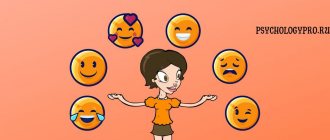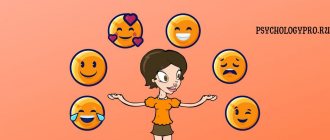To become smarter, you need to develop all types of intelligence at your disposal. But most of us spend our lives exclusively developing our IQ, and this process includes reading, studying, professional growth, and hobbies.
Very few people purposefully develop emotional intelligence, learn to observe people and perceive the emotions of others, and take control of their own emotions. And there are very few who have heard that there are two more types of intelligence, which means additional opportunities to become smarter.
The famous American coach Stephen Covey identifies 4 types of intelligence:
- Physical intelligence (PQ).
- Mental intelligence (IQ).
- Emotional intelligence (EQ).
- Spiritual intelligence (SQ).
Stephen Covey once received an MBA from Harvard and a PhD from Brigham Young Mormon University, and his work in the real economy of Fr. The name of Stephen Covey is included in the list of 25 most influential people in America according to Time magazine. And his book “The 7 Habits of Highly Effective People,” which was translated into many languages around the world, brought him the greatest fame.
In addition to the actual set of skills required to become effective, Stephen Covey points out that each of us has much more opportunities for this than we think. These additional capabilities are precisely the presence of several types of intelligence. Each person develops these types of intelligence to varying degrees, and everyone can further develop any type of intelligence.
To make it clearer what exactly we are talking about, let’s consider in order all the types of intelligence that Stephen Covey identifies.
Physical Intelligence (PQ)
Physical Quotient is a person’s intelligence associated with the physical body, physical attitude, desire for health and beauty, material wealth and comfort. And it is the intelligence of the physical body that activates the human organ systems to ensure survival, healing, development of the physical body necessary to achieve the desired level of well-being and comfort.
A person has the opportunity to develop and apply the physical type of intelligence on an equal basis with any other. A person's tendency to use physical intelligence to solve everyday problems can be determined by his interest in sports, dancing, games, handicrafts - in general, everything that requires physical dexterity. Sometimes physical intelligence is called practical, which fits both into the essence of the definition and into the abbreviation PQ - Practical Quotient.
Physical intelligence is an important basic component of human life, without which its survival and development would be impossible. However, if for some reason only physical intelligence develops, this is not at all enough for the harmonious development of the personality. What distinguishes a person from an animal is mental intelligence, and here, too, some explanations are needed.
Musical type of intelligence
People with a musical type of intelligence are easily recognized by their habit of constantly tapping a melody from their heads with their fingers. They easily master musical instruments, memorize and reproduce music.
To develop, they need to listen to music, and the more varied it is, the better. And, of course, it’s worth learning to play a musical instrument.
Career: cinema, creative advertising, recording studio, pop singer, music critic.
Mental intelligence (IQ)
Intelligence Quotient is the very intelligence that a person normally develops throughout his life: studying, improving in his profession, reading books. When we talk about intelligence as such, we mean precisely mental intelligence. So, mental intelligence is our ability to think, analyze, express our thoughts orally and in writing, create abstract images and other mental constructs.
The importance of mental intelligence is so great that people are constantly trying to measure intelligence as a whole and its components in some quantifiable units. A classic example is an IQ test; more recent examples are UPE tests in various subjects, designed to determine the level of knowledge in individual disciplines and, as a result, the level of intellectual development achieved during study at a secondary educational institution.
True, many experts are increasingly inclined to believe that any tests cannot be considered the ultimate truth, and their results cannot be considered an indicator of the level of knowledge, much less intelligence in general. Any tests have their own specific pattern, and often successfully passing a test only indicates that a person has learned to pass tests. Moreover, this applies to both UPE tests and IQ tests.
As an argument against 100% objectivity of tests, the fact is pointed out that creative individuals - artists, writers, musicians - are often strong only in their field, and their analytical abilities and knowledge of the exact sciences can be noticeably lower than the statistical average. But this does not in any way detract from their merits in creativity and does not allow them to consider their intelligence to be underdeveloped.
Nevertheless, everyone needs to work on further development of intelligence. And even representatives of purely creative professions, with a well-developed outlook, have a greater chance of success than their colleagues who have exclusively highly specialized knowledge. However, there are other equally important components of success. And these, as you already understand, are other types of intelligence that we have not yet considered.
Logical-mathematical intelligence
People with a predominant logical-mathematical type of intelligence tend to solve abstract problems, make calculations and easily count the number of objects.
For example, when you need to divide the amount of a check for lunch, there is always a person in the company who can accurately do this in his head. It is very likely that this is the owner of exactly this type of intelligence.
To develop, the logical-mathematical type of intelligence can solve Sudoku, play games, chess and cope with everyday mathematical problems in the head.
Career: accountant, engineer, detective, analyst, financier, programmer.
Emotional Intelligence (EQ)
Emotional Quotient is a person’s ability to recognize and correctly interpret the emotions of other people, understand their intentions and motives for actions, as well as understand their own emotions and desires, and be able to manage them. Based on emotional intelligence, competencies such as interpersonal communication skills, teamwork, leadership and many others are developed.
Emotional intelligence has long taken a strong place in the list of so-called soft skills that are subject to mandatory development for everyone who intends to succeed in life. Moreover, the voices of experts from various fields are becoming louder and louder, believing that emotional intelligence should not be underestimated, and that its constituent parameters are more important for success than the IQ level itself, which was customary to focus on previously.
Like other types of intelligence, EQ can and should be developed. At a minimum, you need to learn to take control of your own emotions, try not to allow negative thoughts to take over your consciousness, learn to listen and hear those around you.
By the way, Stephen Covey’s time management matrix helps you put your thoughts and emotions in order: he suggests dividing all your affairs and responsibilities into four categories and planning time for each of them. Then you will have fewer objective reasons for stress and negativity and will have more time for positivity in everyday life. However, maximum calm and awareness are achieved only by those who are able to develop all types of their intelligence, including spiritual.
The concept of “intelligence” and its properties
Intelligence refers to the ability of an individual to learn something new, learn and develop, as well as the ability to achieve goals, solving problems along the way. Each type of intelligence combines all types of personal cognition. These include:
- Perception (a holistic assessment of any manifestations of the surrounding world);
- Memory (remembering, storing and reproducing information);
- Thinking (formation of ideas, concepts and judgments);
- Sensation (direct impact of the stimulus on the sense organs);
- Imagination (creating images, controlling them, forming conclusions).
Spiritual Intelligence (SQ)
Spiritual Quotient is the highest of all types of human intelligence. It is spiritual intelligence that makes a person a person capable of setting life goals, searching for and finding his life mission, and comparing his actions with life values. If all higher mammals, along with humans, possess emotional intelligence, then spiritual intelligence is the prerogative of humans exclusively.
Just in development of the topic of spiritual intelligence, Stephen Covey’s next book about the so-called “Eighth Habit” appeared. As you probably guessed from the title, this book became a kind of continuation of the world-famous bestseller “The 7 Habits of Highly Effective People.”
Stephen Covey's eighth skill is the ability to find your voice and inspire others to find their voices. “Finding your voice” according to Covey is the ability to choose your life path, which does not necessarily coincide, but rather does not coincide at all with the average experience of hundreds of thousands of people. This is the ability to make your own choice in any situation. In essence, one’s voice is the “Path to Greatness” when a person lives life with meaning and awareness of its meaning. Of course, such an approach is impossible without spiritual intelligence.
In many ways, another book by Stephen Covey, “Focus on the Main Things,” echoes these ideas. Live, love, learn and leave a legacy.” Spiritual intelligence involves the ability to look back at your life and find the top few things to do first. Stephen Covey, as we see, offers his list of such “main things”:
- Live.
- Be in love.
- Study.
- Leave a legacy.
Your personal list may look a little different, but the point is the same: you should focus on the main things in your life. Also, you should not allow secondary vanity to occupy the main place and main time of your life.
This does not mean at all that a person should not or will not have to engage in routine. You will have to, however, this process can be streamlined by allocating your time to everything. By the way, the previously mentioned time management matrix can also help with this.
So now you have another answer to the question “How to become smarter?” and specific tips in which direction to develop. It is not at all difficult to determine which types of intelligence you currently have to a greater extent, and what should be given more attention. All that’s left to do is start taking action.
And, by the way, our “Cognitive Science” course, aimed at developing thinking, can help you with this. In a couple of months, you will be able to master more than two dozen effective thinking techniques that will allow you to find solutions to the most complex and non-standard problems, achieve great success and make your life better.
We wish you success and look forward to attending our programs!
We also recommend reading:
- Storytelling
- Signs of Low Emotional Intelligence
- Cattell-Horn-Carroll theory
- Things that help you become smarter
- Covey's "Eighth Habit": summary
- Valentine's card from 4brain
- What You May Not Know About Intelligence
- Deep Learning: What is the essence of the deep learning method?
- Intelligence and its development: several recommendations
- Gardner's Theory of Multiple Intelligences
- General Intelligence Factor
Key words: 1Cognitive science, 1Self-knowledge
The essence of Howard Gardner's theory of multiple intelligences
For example, he believes that the intelligence of a child who solves logical problems perfectly is no higher than that of one who cannot cope with these tasks. He just has a different type of thinking. He might know everything about insects or play three musical instruments.
Gardner emphasizes that intelligence is not an object or some mechanism in our head. This is a resource that allows you to use different forms of thinking. Intelligence is the ability to solve problems or create products, determined by the cultural and social environment.
The seven types of intelligence identified by the psychologist are equivalent to each other. They do not depend on each other, but work as independent systems. Each species represents a way of interacting with the world, and valuing some intelligences higher than others is purely a cultural tradition. Multiple intelligences, according to its discoverer, have the following types:
- linguistic;
- logical-mathematical;
- musical;
- spatial-visual;
- bodily-kinesthetic;
- interpersonal;
- intrapersonal.
Later, continuing to work on his theory, the scientist added two more:
- naturalistic;
- existential.
Thus, we see 9 types of thinking. Let's look at each of them.
Linguistic or verbal-linguistic intelligence
This is the ability to use speech in its various manifestations, orally and in writing. People characterized by this type are excellent speakers. They know how to talk about everything in an interesting way, keeping the audience's attention. It is easy for them to memorize texts and write essays.
Kids with this type of thinking easily learn poems and recite them with pleasure. The alphabet is easy for them. They begin to read and write early and love books. Such children quickly master foreign languages and love word games. They enjoy participating in plays.
Holders of this type of intelligence become writers, politicians, journalists, editors, and translators. The professions of literature teachers, trainers, TV presenters, and lawyers are also suitable for them.
Logical-mathematical intelligence
This is a manifestation of logical and abstract thinking, the ability to compare objects mentally without having them in sight. These are lovers of mathematical precision and calculations, the method of deduction and analysis, and finding cause-and-effect relationships.
Children with the logical-mathematical type quickly learn to classify, understand abstract concepts and draw conclusions and conclusions. They like logic puzzles, puzzles, number games and all kinds of calculations. They love scientific experiments and science-related books.
The choice of a future profession is also usually related to science. Such people become mathematicians, physicists, astronomers, engineers, accountants, and programmers.
Musical intelligence
This is the ability to play various musical instruments, sing, understand the rhythmic pattern, strength and pitch of sounds. People with musical intelligence have a great understanding of music. They have excellent hearing, allowing them to distinguish the purity, pitch, and timbre of sound. They convey and feel the rhythm well.
Babies with this type listen to music and react to it emotionally from the first months of life. They prefer musical toys to others. As they get older, they easily remember and reproduce music. They can start studying at music school earlier than their peers. In learning, it is better for them to use listening and listening methods. It is easier for them to do their homework with music.
These are future composers, musicians, singers, artists, DJs, sound engineers.
Spatial or spatial-visual intelligence
Talks about the ability to modify information and transform it into visual images. The ability to mentally act with these images in three dimensions.
Adults have a great sense of color and shape, lines and sizes. They have excellent visual memory. They easily remember faces, objects, pictures and even pages of text. They easily find their way on a map, remember what, how and where it is located.
Children with predominant spatial thinking easily imagine any images and transfer them into their world: fantasies, games, crafts, drawings.
These are sculptors, artists, designers, photographers, architects, builders. This type of intelligence is inherent in chess players and engineers, stylists and image makers, as well as drivers.
Bodily-kinesthetic intelligence
This is the ability to use all parts of the body to perform assigned tasks. This includes gross and fine motor control, body movement, agility, balance, and spatial coordination. As well as the use of environmental items.
People of this type move a lot, play sports and dance. Most often they have an athletic figure. They look after their body, with the help of which they try to assert themselves.
Children from an early age are very flexible, dexterous, and active. They can control and coordinate their movements well. For example, they start riding a two-wheeled bicycle earlier than their peers. They love active games, running around, and cannot sit still for a long time. Typically, this type of intelligence is possessed by athletes, dancers, jugglers, surgeons, and firefighters.
Interpersonal intelligence
The ability to recognize people's feelings, capture their mood, understand the language of their behavior and mood. These are people who quickly get along with others, feel their condition, and support them. They have high empathy for others and understand how they can be helped. They are kind and attentive to loved ones, and they control their emotions well.
Young children with such thinking immediately react to changes in the face, tone of voice, and gestures of a significant adult. They try to smooth out conflicts, love playing with other children, and often take on the role of leader. Even in childhood, such children understand other people very well and try to help, guide, support, and reassure.
They grow into wonderful, sensitive leaders, public figures, teachers, doctors, psychologists, volunteers, and rescuers.
Intrapersonal intelligence
This is also the ability to recognize feelings, but not of other people, but of your own. This is necessary to determine self-awareness, self-development, and perception of oneself in the world and with other people.
Most often, these are introverts who strive to develop themselves, make life orderly, and follow the rules. They are able to negotiate with themselves in order to change their attitude towards certain situations.
Such children are very organized from an early age. They can evaluate their actions, actions, see their strengths and weaknesses. They understand what they really want. Thanks to this, they are able to decide whether they will do it or not.
Like people with the interpersonal type, these people choose similar professions. Psychologist, teacher, philosopher, historian and others where the qualities of this intellect are needed.
Naturalistic intelligence
The ability of a person to interact with nature, to feel its significance and influence on people and the world around. Such people are interested in studying all living things, as well as observing the weather, collecting stones, and studying environmental changes.
Previously, these were those who picked berries, mushrooms, and herbs. Now these are mainly ecologists, naturalists, and zoologists.
Children with naturalistic intelligence love the outdoors. They like to go hiking and go to the mountains. They are happy to help adults in the garden. They have been interested in animals and plants since childhood. Gerald Durrell had this type of intelligence. This can be learned from his books, starting with the first “My Family and Other Animals”, where he describes himself as a child.
Previously, it was customary to take children to nearby parks for lessons on the world around them. Such activities best help children with this type of intelligence learn the program.
Existential Intelligence
It is the ability to perceive and study the world through religion, philosophy and meditation. Typically, this type of intelligence, according to Howard Gardner, is possessed by children who are raised in religious families from birth. But it happens that the child himself begins to be interested in these topics.
Such children often ask questions about the meaning of life, about death, about God or higher powers. They love history, scripture, and conversations about spirituality. Growing up, they go to study to become philosophers, journalists, and analysts. They become public figures, yoga teachers, and priests.
So, according to the author of the theory of multiple intelligences, it includes 9 types or directions. It is rare for a person to possess only one of them. As a rule, people have several abilities that manifest themselves in childhood. More precisely, each of us, to one degree or another, has all types of intelligence. But, depending on the environment, only some of them develop.
Bodily-kinesthetic type of intelligence
People of the bodily-kinesthetic type of intelligence have never been accused of clumsiness. They are very aware of their own body, so they have good coordination and are very mobile.
This can be observed in dancers and some athletes, such as gymnasts.
To develop this type, you need to dance a lot, study dance that helps train coordination or do yoga.
Career: physical therapist, actor, circus performer, surgeon, personal fitness trainer.
Natural
This type determines a person’s ability to interact with nature: to feel the animal and plant world. A person notices everything that is around him. He is interested in exploring plants, studying animals, their habits, classifying species, monitoring the weather, collecting butterflies or minerals.
A person with natural intelligence loves nature and outdoor recreation. For him there is no better holiday than going to the forest, to the lake or to the mountains. This ability was considered a gift by our ancestors. It was possessed by great hunters, berry and mushroom gatherers.
Despite the fact that such an ability is becoming a thing of the past, due to the development of technology, which has become firmly established in life, people will find themselves in such professions as:
- livestock farming;
- botany;
- gardening;
- astronomy;
- chemistry;
- cooking;
- agronomy;
- archaeologist.
This type of intelligence used to be incredibly in demand. After all, our ancestors interacted closely with nature: they collected herbs, fruits, and hunted. This gift was considered incredibly useful, and its owner received respect.
Social type of intelligence
Social intelligence is the ability to understand and recognize various social roles, as well as change and flexibly adapt such roles in one’s life.
A person can be a child or an adult, a teacher or a student, a leader or a subordinate, and so on. Each role has certain properties and rules. Sometimes, if there is such an opportunity, the person himself sets them, sometimes you have to accept someone else’s rules and play a role that is not typical for you.
A person with high social intelligence in this process, as a rule, knows how to impose certain roles on others. This can be called social influence. If you have high social intelligence, then you are likely to be able to influence other people and have high social influence.
A quote confirming this conclusion is from Marshall Goldsmith’s book “What Got You Here Won’t Get You There: How Successful People Become Even More Successful!” (the Russian edition is called “Jump over your head! 20 habits that you need to give up in order to conquer the pinnacle of success”):
At the highest levels of the corporate ladder, behavioral issues become of primary importance. All other things being equal, as you move up, your ability (or inability) to work with people becomes more and more noticeable. Moreover, sometimes it is your ability to work with people that determines how high you will rise.
Who should be appointed as chief financial officer? Is it enough to have a qualified accountant who does business well with colleagues from other firms and knows how to manage the smartest people? Or a brilliantly gifted specialist who, however, is unable to find a common language with colleagues and pushes away capable subordinates?
The choice is clear. Preference will be given to a candidate who knows how to work with people, largely because he will be able to find employees who know finances better than him and manage them correctly. And the prospects of a brilliant specialist in this regard are doubtful.











